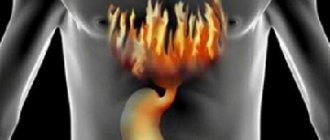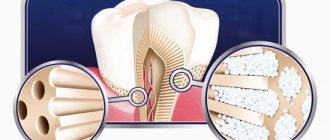Hydrochloric acid is the main component of gastric juice. The pH environment and the degree of functioning of the gastrointestinal tract depend on its concentration. With values below or above normal, we can talk about low or high acidity, which can threaten the development of a number of serious diseases. If you suspect deviations from the norm, you should make an appointment with a gastroenterologist and check your health. The Heratsi clinic regularly holds promotions for medical services, where you can get tested or get a consultation at a discount.
Symptoms of low acidity
After eating, many people may experience a feeling of heaviness, especially if food is consumed “on the go,” in a hurry, or poorly chewed. With normal stomach function, this sensation passes quite quickly, and you forget about it. If you regularly feel heaviness that does not go away for a long time, this is a reason to consult a gastroenterologist.
In addition to severity, you may be tormented by other symptoms indicating low acidity:
- Belching with a rotten odor;
- Constant bad breath, not related to oral hygiene;
- Problems with stool, most often constipation;
- Nausea and vomiting;
- The presence of undigested food particles in the stool;
- Pain in the stomach that occurs sharply with a cramping character;
- Bloating and increased gas formation;
- Lack of appetite.
If you ignore such manifestations or try to get rid of the symptoms on your own, serious consequences for your body are possible.
What is low stomach acid?
05.05.2021
Low stomach is an eating disorder associated with a decrease in the amount of hydrochloric acid (HCL) in the gastric juice. Hydrochloric acid is vital for proper digestion. It converts pepsinogen into pepsin, an enzyme that breaks down proteins into smaller, more easily digestible substances. In addition, hydrochloric acid prevents the migration and colonization of bacteria from the intestines to the stomach and is an important part of the immune system , since it serves as an acidic barrier to the development of a number of microorganisms that enter the stomach with food.
People suffering from stomach and digestive problems often think that they are caused by too much stomach acid. The reason may be that the symptoms of excess and lack of stomach acid are almost the same. Therefore, research is needed before any conclusions can be drawn on this issue.
Symptoms of low stomach acid
Symptoms of low stomach acid may include flatulence, belching , nausea and vomiting, bloating , burning or heaviness in the stomach , especially after eating, indigestion , bad breath , chronic candidiasis , diarrhea or constipation , undigested food in stool, food allergies , abdominal , itching around the rectum , weak and brittle nails, skin rashes and disorders, acne , chronic intestinal parasites, iron deficiency, hair loss, increased incidence of parasitic infections, etc.
It is important to note! All of these symptoms could be the result of other problems related to your health - these are quite early warning signs that are worth keeping in mind. As your symptoms worsen, you'll know where the problem might be and how to solve it.
Gastric juice is a “natural killer” of bacteria
Decreased production of hydrochloric acid is called hypochlorhydria or achlorhydria. This deficiency condition can be caused by atrophic gastritis , chronic gastritis , autoimmune thyroiditis , pernicious anemia, parasitic infection (worms), mucopolysaccharidosis IV, Ménétrier's disease (hypertrophic gastritis ), Helicobacter pylori infection and Helicobacter pylori.
This deficiency should not be ignored because it increases the risk of developing certain bacterial and parasitic infections and aggravates existing ones. In a healthy person, the amount of acid in the stomach is enough to kill bacteria, but as we age, acid production may decrease and this can lead to lower pepsin levels. This in turn leads to indigestion . In people with low levels of hydrochloric acid, bacterial colonies are often observed in the stomach .
How can we deal with the problem?
First of all, you need to consult with a specialist after carrying out the necessary tests. The second step is to improve your diet . This should be done first, since adjusting your eating habits is based on the principles of healthy eating. According to studies, people on a diet have normal levels of stomach and do not suffer from bacteria in the small intestine. Thus, a diet rich in fruits, vegetables, nuts and seeds would alleviate stomach and digestive problems. Additionally, people suffering from hypochlorhydria can take an additional source of hydrochloric acid - betaine hydrochloride. This will support pepsin production and improve and regulate digestion, especially of protein-rich foods, which are usually difficult for people suffering from low acidity to process.
What is betaine hydrochloride - betaine HCL?
Betaine HCL is the acidic form of betaine, a vitamin-like substance found in grains and other foods. It is actually a vitamin derived from choline, which is extracted from sugar beets. It contains organically bound nitrogen and has a pronounced lipotropic effect. Betaine hydrochloride also helps neutralize lactic acid and reduce the toxicity of harmful homocysteine, a protein intermediate formed during the conversion of the amino acid methionine.
As with any supplement, it is recommended that you consult a physician .
Published in Gastroentorology Premium Clinic
Why is it dangerous?
Low acidity levels can lead to serious disturbances in the gastrointestinal tract. It is also a symptom of a number of complex diseases and pathologies, such as:
- Gastritis in the chronic phase;
- Endocrine diseases, including diabetes mellitus;
- Anemia;
- Infections caused by parasites;
- Oncology.
The sooner you contact a good gastroenterologist in Rostov, the sooner he will be able to determine the cause of low acidity and prescribe appropriate treatment. The medical office is attended by an experienced specialist who will help solve your problem. If there is insufficient information to make a diagnosis, you will be prescribed an additional examination: tests or ultrasound of the abdominal organs in Rostov-on-Don. Only if there is a complete picture of the disease, the doctor will select the treatment that is right for you, taking into account the characteristics of the body. Our goal is to solve the problem, not relieve you of symptoms. To make an appointment, use the convenient form or contacts of the medical center listed on the website. The hotline is available to you 24 hours a day.
Treatment
Information on how to reduce stomach acidity should be obtained from a gastroenterologist. Any options for self-medication at home using improvised means are not only ineffective, but can also lead to the development of complications. For symptoms of gastritis with high acidity, diet and treatment include exclusion from the diet of fried and fatty foods, smoked meats, fast food, alcohol, canned meat, fish and vegetables, spices, seasonings, and sauces. You should eat in small portions, 4-5 times a day. Dishes must be prepared mainly by steaming or boiling. In case of increased acidity of the stomach, diet No. 1 according to Pevzner is prescribed.
For symptoms of gastritis with low acidity, treatment and diet include recipes for dishes that stimulate the acid-forming function of the stomach.
To treat high stomach acidity, traditional medicine uses the following groups of pharmaceuticals:
- Antibacterial drugs that are effective for hyperacid gastritis caused by the bacterium Helicobacter pylori.
- Enveloping agents.
- Proton pump inhibitors.
- Antacids.
- H2 histamine blockers.
- Bismuth preparations.
To maintain normal gastric acidity, it is important to maintain a balance of normal gastric microflora. For this purpose, it is recommended to use metaprebiotics, which contain a natural nutrient substrate for gastric and intestinal bacteria. Metaprebiotic Stimbifid Plus helps not only restore the balance of normal gastric and intestinal microbiota, but also promotes the eradication (destruction) of Helicobacter pylori. Also, metaprebiotic components accelerate the process of restoration of the gastric epithelium.
Symptoms and signs of the disease
The symptoms of such gastritis are associated with the severity of the disease. At the very beginning, they may not be noticeable at all. But later complaints with hypoacid gastritis are as follows:
- pain in the upper abdomen (sometimes radiating under the ribs on the left side);
- feeling of discomfort (feeling of heaviness, bloating);
- belching “rotten eggs”, metallic taste in the mouth, tongue with a gray coating;
- poor appetite;
- frequent diarrhea or constipation;
- nausea, excessive salivation;
- chronic fatigue, headaches, low performance;
- weight loss, changes in sleep patterns.
During a severe exacerbation, other signs may be added: rapid heartbeat, fainting.
Causes leading to impaired stomach acidity
Increase acidity:
- poor quality nutrition, irregular food consumption, abuse of coffee, smoked meats, diet;
- there are many diseases that require long-term use of anti-inflammatory drugs;
- stressful situations;
- smoking, excessive nicotine intake;
- Helicobacter pylori infection.
Reduce acidity:
- Helicobacter pylori infection;
- eating disorder;
- bad habits;
- genetic disorders;
- diseases of the liver and pancreas;
- pathology of the endocrine system and metabolic processes.
As we can see, the reasons are largely similar. But in each individual person they will cause different manifestations of the disease, depending on the person’s initial health status, his lifestyle and diet, and the presence of concomitant pathology.
Causes of hypoacid gastritis
The reasons due to which this disease appears can be external and internal.
External ones include:
- abuse of tobacco products and alcoholic beverages;
- improper diet, spicy, fried, fatty, smoked foods;
- abuse of medications with side effects on the gastric mucosa;
- harmful effects of chemicals and radioactive substances;
Internal include:
- gastrointestinal pathologies and disorders of the immune system;
- impaired metabolism, liver, pancreas and thyroid glands;
- various genetic abnormalities in the development of the mucous membrane.
Hypoacid gastritis most often affects adults and males. Children and women are less susceptible to this disease.











